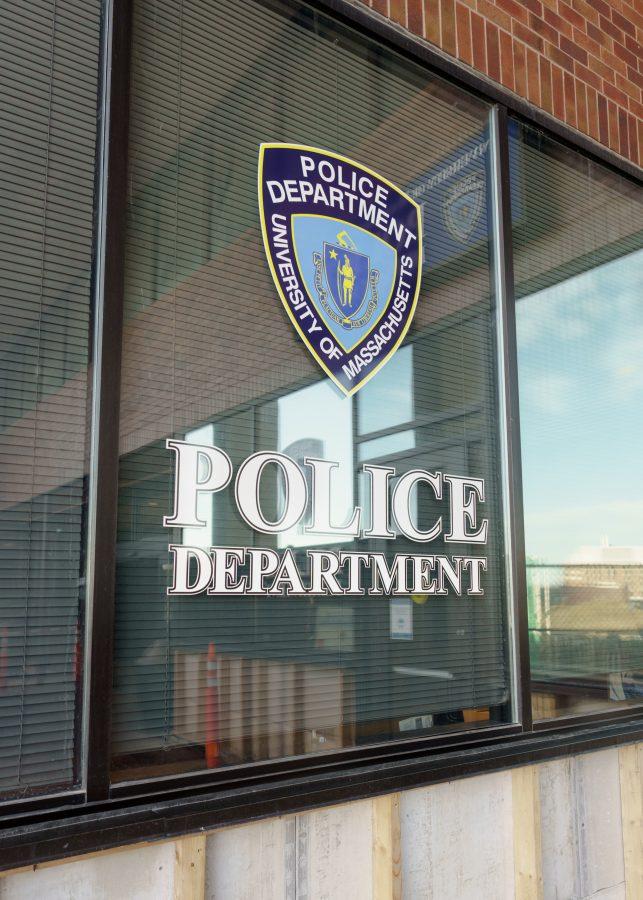Taking inspiration from a Women’s, Gender & Sexuality Studies course, four current and former UMass Boston students—Sydney Yskollari, Sydney Perkins, Kaylee Bruce and Shanara Goldson—collaborated on an activist project to create safe school environments. This project was inspired by a model piloted by the American Civil Liberties Union titled the Racially Just Policing Policy.
In email correspondence with Sydney Yskollari, 18, she stated: “The ACLU and Bridgewater State University worked together to create reforms to be integrated at universities to enhance public safety by ensuring racially just policing strategies. This policy has been effectively implemented at many universities, such as Bridgewater State.”
Yskollari and her collaborators noticed the steep police presence on campus and the negative effects it had. She wrote: “We also observed that police were often the first responders to any emergency, big or small, especially mental health crises.”
“For example, in the dorms on my floor specifically, a girl had burnt popcorn in her room and as a result, four police officers flooded my floor at 9 p.m.,” elaborated Yskollari. “This created fear and worry within my peers as we were given no information on the incident or why the officers were there. This is not the only time this has happened. Police officers will be casually placed around the campus, standing in full gear with their weapons and armory, intimidating and scaring the students with no real cause or purpose.”
The excessive police presence on campus, in conjunction with a successful police reform model pioneered by the ACLU, led to the student-initiated creation of an executive summary that outlines recommendations for how campus police should interact with the surrounding UMass Boston community.
The first recommendation is a Community Mental Health and Support Services Department. This provision outlines that when an individual is experiencing a discernible mental health crisis, communal mental health support services should be located on campus that operate separately from the university. Within this provision encompasses the inclusion of separate phones and email lines so as not to merit police involvement and to ensure that after law enforcement responds, mental health professionals still remain in control of the situation. The intention of this clause is to keep students safe and to allow qualified mental health professionals to utilize their expertise to remedy a crisis that a student may be going through. Additionally, this policy recommends employing supplemental employees if necessary and to assess how instituting this policy shift would affect how current capital is being distributed.
Another recommendation is the inclusion of Community Advisory Commissions at UMass Boston. The document states that campus police need to recognize the diversity of the UMass Boston campus and encourage collaboration with various sectors of the community such as students, faculty, staff and civil rights organizations. The advisory board in question will not only welcome collaboration, but also inquire into any issues and assess whether present policies disproportionately target racial minorities. This is intended to foster the creation of policy solutions and additional recommendations. It is also meant to signal to the UMass Boston campus community that law enforcement officers will be held responsible for their actions, and that communities will have their necessities accounted for.
Within the executive summary it is suggested campus police provide fair and impartial policing. This clause stresses that police only engage in contact when encountering a physical threat to safety and, even when doing so, utilize de-escalation tactics. It calls for the removal of vague perpetrator descriptions and for police officers to communicate to individuals accused of a crime that police encounters are voluntary, as well as mandate that officers give the accused officer information—i.e., business cards. Following a police encounter, police officers will be mandated to disclose accurate documentation, as well as provide a rationale for why a law enforcement officer stopped an individual in the first place. Lastly, it will be compulsory for police officers to provide physical evidence of stopping any individual in the UMass Boston community and to incorporate further evidence that is applicable to the interaction.
The recommendation titled Suspicious Activity or Person Calls states that any calls communicating questionable individuals or actions be extensively described so that the first responder can delineate whether a police presence is necessary. The police department website should clearly display what is defined as suspicious behavior and which emergency service should be contacted. This provision is in place so as to prohibit the misuse of police funds and to construct confidence within the community.
An additional clause within this executive summary calls for the Regular, Continuous and Relevant Training of UMass Boston law enforcement. This policy suggests that any law enforcement officers and other relevant staff consistently interacting with members of the staff should receive training in cultural competency and bias-awareness. The provision also emphasizes that officers should receive training in de-escalation techniques, how to respond appropriately to mental health crises, and disability and disorder training. However, this policy stresses that the training that police receive will do more than meet basic requirements and will continually be evaluated in order to determine its efficacy.

